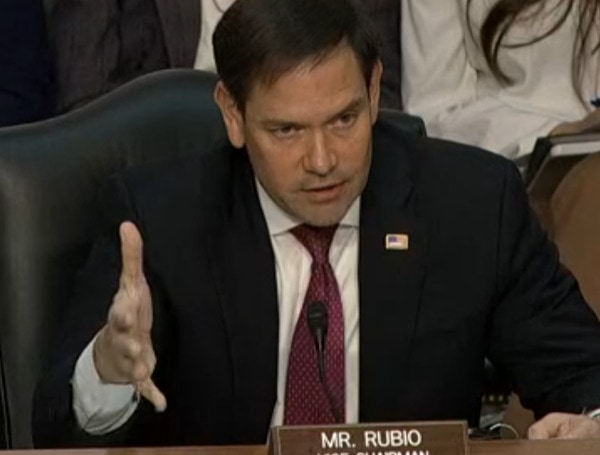U.S. Senator Marco Rubio (R-FL), the Vice Chairman of the Senate Select Committee on Intelligence, has sounded the alarm on the dire state of the federal government’s security clearance systems under the Biden administration.
Rubio’s concerns stem from a recent hearing where he grilled top intelligence officials, exposing a troubling lack of progress in modernizing these critical systems, which he believes pose a grave threat to the nation’s most sensitive information and assets.
Read: Florida Sens. Scott And Rubio Rip Biden For ‘Election-Year Gimmick’ On The Border
“Last year, we held a hearing on this topic, and I stated at that time that the clearance process and the ongoing reforms [to it] are at the fundamental core of protecting our security and our nation’s most sensitive assets, capabilities, and information. It’s the job of this committee to ensure that our intelligence is secure. At least, that’s our job from a congressional oversight perspective, so it’s with serious concern that we’re back here a year later in what I believe is a position worse than we were a year ago. I’m hoping that I hear from testimony today that that’s not the case,” said Rubio.
Rubio’s concerns are not unfounded. He pointed to the 2014 data breach of the Office of Personnel Management (OPM), which exposed the sensitive personal information of millions of federal employees and contractors, as a stark reminder of the vulnerabilities inherent in the current clearance system.
Despite the passage of time, the government has yet to fully address the issues that led to this devastating incident.
Read: Protecting The Florida Coastline: Senators Rubio, Colleagues Challenge Army Corps
“We had the 2014 Chinese hack into the Office of Personnel Management. The next-generation security clearance IT system, the National Background Investigation Service, was expected to be online by 2019. It’s now 2024, and we don’t have full NBIS utilization. [There has also been] no termination of expensive and old legacy security clearance systems, [on which we] already [spend] more than $1 billion per year. I recognize these IT systems require upgrades. But in this case, with all these expensive security clearance legacy systems still online, we have no timeline for full utilization being finalized and an opt-in or opt-out confusing option for any federal department or agency. I want to be persuaded why this isn’t waste and redundancy and a serious lack of ownership and accountability.
“Our responsibility as a committee is to make sure that our nation’s most sensitive secrets are being protected…. We’ve got to be able to protect our secrets and make sure the people that we’re bringing in are properly vetted. But we also have to be able to bring in the best people we possibly can into the workforce. It’s essential that a timely and secure means of recruiting, onboarding, and retaining cleared personnel exists. I’m hoping that I can hear something today that makes me feel better about everything I’ve just said, because when I compare where we are today to where we were a year ago, I think it’s gotten worse, not better,” said Rubio.
Rubio warns that the protection of the nation’s most sensitive information and assets must be a top priority, and the government must act swiftly to address the systemic issues plaguing the clearance processes.
Help support the Tampa Free Press by making any small donation by clicking here.
Android Users, Click To Download The Tampa Free Press App And Never Miss A Story. Follow Us On Facebook and Twitter. Sign up for our free newsletter.

